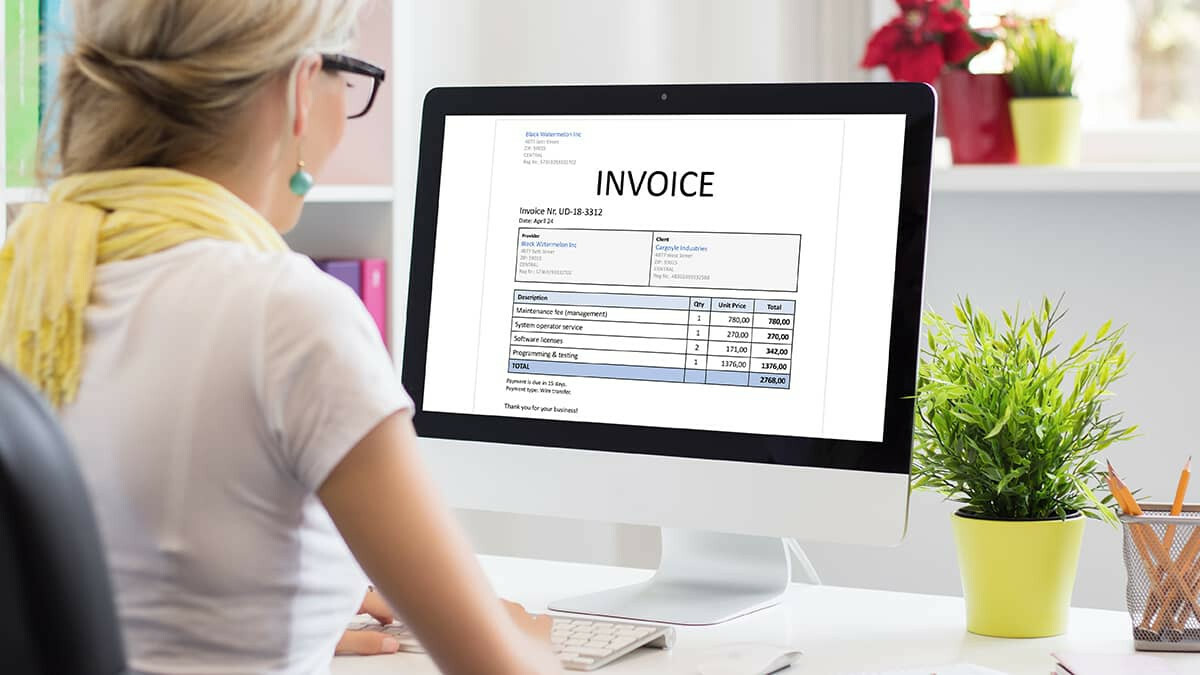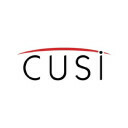Maximizing Efficiency and Profits with the Best Billing & Invoicing Tools for Real Estate Industry
They trust us:





Best Billing & Invoicing Tools For the Real Estate Industry
(source:https://images.app.goo.gl/3TLpkRHBvmrFV6KH9)
In the real estate industry, billing and invoicing tools are crucial for managing payments and ensuring timely billing. One of the best billing and invoicing tools for the industry is FreshBooks. This software offers a range of solutions, including invoicing, time tracking, and expense management.
With its powerful tools and user-friendly interface, FreshBooks is an excellent choice for businesses looking to manage their billing process and get paid faster. Another popular billing and invoicing tool is QuickBooks, which offers a range of features, including invoicing, payment processing, and financial reporting.
With its comprehensive tools and robust reporting, QuickBooks is a great choice for businesses of all sizes. Finally, Zoho Invoice is a comprehensive billing and invoicing tool that offers a range of solutions, including invoicing, payment reminders, and project management. Its powerful tools make it an ideal choice for larger businesses with complex billing needs.
Overall, these billing and invoicing tools are essential for managing payments and ensuring timely billing, making them a must-have for real estate professionals looking to improve their financial management.
What is LogiSense Billing?
LogiSense Billing is a cloud-based, usage-based billing platform designed to enable businesses to offer flexible pricing and billing models to their customers. The system supports both subscription and usage-based billing models, as well as any combination of the two, and allows companies to configure their pricing in real-time or automate the billing process altogether.
LogiSense’s platform can accommodate any type of pricing structure and supports the quote-to-cash flow within existing infrastructure, making it easy to add event-driven monetization capability to existing investments. Additionally, LogiSense Billing is built for scale, flexibility, diversity, and ease of use, with a modern microservices architecture that makes it versatile, proficient, and easy to add new products and services.
The platform can automate and improve the subscription billing process, eliminating human error and supporting innovative pricing models. LogiSense’s billing portal is also secure, ensuring that only authorized users can access customer data and logs while meeting all applicable governance and privacy regulatory requirements.
Overall, LogiSense Billing is a powerful and flexible solution that enables businesses to streamline their billing processes, diversify their product and service catalogs, and adjust to industry and marketplace currents.
What are the features of LogiSense Billing?
LogiSense Billing is a cloud-based billing and revenue management solution designed for businesses of all sizes. The key features of the platform include:
Billing and Invoicing: The platform automates the entire billing and invoicing process, from generating invoices to accepting payments.
Subscription Management: LogiSense allows businesses to manage subscriptions, recurring payments, and automated renewals.
Rating and Pricing: The platform provides a flexible rating engine that can be customized to match business needs. It also supports various pricing models, including usage-based, tiered, and flat rate pricing.
Revenue Management: LogiSense enables businesses to track and manage revenue streams from various sources, including subscriptions, usage, and one-time purchases.
Analytics and Reporting: The platform provides detailed analytics and reporting, allowing businesses to gain insights into their billing and revenue streams.
Integrations: LogiSense integrates with various third-party systems, including CRM, ERP, and accounting platforms, to streamline business operations.
Security and Compliance: The platform is compliant with various data security standards, including PCI DSS and SOC 2 Type II. It also provides advanced security features, such as multi-factor authentication and data encryption.
What is the pricing of LogiSense Billing?
LogiSense Billing is a cloud-based automated billing and pricing platform that allows companies to provide consumption-based pricing and billing to their clients. However, the pricing information is not readily available on their website.
Nevertheless, based on information available from various sources, LogiSense Billing pricing plans are customized and can vary depending on the features, modules, and services selected. The platform supports various pricing models and billing methodologies, including subscription-based, usage-based, tiered, flat-rate, and one-time payments.
The pricing is reportedly competitive, and LogiSense Billing’s ROI (Return on Investment) has been found to be high by independent research firms. The platform is feature-rich and offers several functionalities, including usage and rating engine, recurring billing, automated billing, and integrations with third-party applications.
Additionally, LogiSense Billing’s API-first microservices platform allows users to expose billing functions via RESTful APIs, facilitating automation and integration with other software solutions. Users can request a customized quote based on their specific billing needs, and LogiSense Billing offers a free trial to test the platform’s capabilities.
What is CIS Utility Billing?
CUSI (Continental Utility Solutions, Inc.) is a software company that provides customer information systems, utility billing applications, and financial management software to utilities and local governments. The company has been in business since 1984 and is committed to helping its clients succeed by delivering industry-leading utility billing software.
CIS Utility Billing is one of the solutions offered by CUSI, a Windows-based utility billing system that provides utilities providers with a single interface to manage payments, deposits, customer accounts, taxes, and meters. The software can be used for water, electricity, gas, waste, and sewer utilities, and is designed to be user-friendly, efficient, and effective.
In addition to the software, CUSI also provides quality training to ensure the success of its clients, as well as customer service that is responsive and ready to help. The CUSI CIS/Utility Billing product has been highly rated by its users, who appreciate the user-friendly interface, well-laid-out tabs, and excellent customer service.
What are the features of CIS Utility Billing?
CIS Utility Billing is a software designed to help utility companies manage their billing and customer information. Some of its features include:
Customizable billing: CIS Utility Billing allows utility companies to create customized billing plans based on the specific needs of their customers. This includes flexible pricing and payment options.
Customer management: The software provides tools for managing customer information such as billing history, payment history, and contact details. It also allows for customer self-service options like online payments and account management.
Meter reading and usage tracking: CIS Utility Billing helps track and manage meter readings and usage data to ensure accurate billing and resource allocation.
Automated billing and payment processing: The software automates the billing and payment process, reducing the need for manual data entry and paper-based transactions.
Reporting and analytics: CIS Utility Billing provides detailed reports and analytics to help utility companies better understand their billing and customer data, as well as monitor trends and identify areas for improvement.
Regulatory compliance: The software is designed to comply with regulatory requirements and standards for utility billing, such as those set by the National Association of Regulatory Utility Commissioners (NARUC) and the Federal Energy Regulatory Commission (FERC).
Overall, CIS Utility Billing helps utility companies streamline their billing processes, improve customer service, and increase operational efficiency.
What is the pricing of CIS Utility Billing?
CIS Utility Billing is a Windows-based utility billing solution designed for water, gas, electricity, and waste and sewer utilities. The software helps utilities providers manage payments, deposits, tax, customer accounts, and meters all through a single interface.
Unfortunately, the pricing details for CIS Utility Billing are not publicly available on their website. You will need to contact CUSI directly to get more information about their pricing. It is common for utility billing software vendors to offer customized pricing plans that are tailored to the specific needs of a utility provider.
I recommend reaching out to the CUSI team to discuss your requirements and budget, so they can provide you with a customized pricing quote. They may offer subscription plans or one-time pricing, so it’s best to inquire about the various options available to find the best fit for your utility billing needs.
What is TYASuite E-Invoicing?
TYASuite E-Invoicing is a cloud-based software solution designed to help businesses generate and manage invoices in a simple and effective way. It automates everyday tasks like tax filing and accounting while resolving compliance challenges related to e-invoicing.
With TYASuite E-Invoicing, businesses can generate all types of e-invoices, cancel e-invoices, and print real-time e-invoices. The software provides a user-friendly dashboard and can accommodate multiple GST numbers. Each invoice has a unique identification number issued by the invoice registration portal (IRP).
TYASuite E-Invoicing offers robust data security to businesses of all sizes, so business owners don’t have to worry about their data being backed by a third party. The software also supports business operations in multilingual environments. TYASuite E-Invoicing is economically priced and suitable for companies with hundreds or thousands of employees. The software has a free trial available, and businesses can request a demo to learn more.
What are the features of TYASuite E-Invoicing?
TYASuite E-Invoicing is a cloud-based solution that offers a range of features to streamline the invoicing process. Some of the key features of TYASuite E-Invoicing are:
E-Invoicing: TYASuite allows businesses to generate and send invoices to their customers electronically, eliminating the need for paper-based invoicing.
GST Compliance: The solution is GST-compliant and allows businesses to generate GST-compliant invoices with ease.
Automated Invoicing: TYASuite E-Invoicing can automate the invoicing process, allowing businesses to create, send, and manage invoices more efficiently.
Payment Reminders: The solution can send payment reminders to customers automatically, reducing the need for manual follow-ups.
Dashboard: TYASuite offers a user-friendly dashboard that provides real-time visibility into the invoicing process, enabling businesses to make informed decisions.
Reporting: The solution comes with advanced reporting capabilities, allowing businesses to track invoice status, payment history, and other key metrics.
Integration: TYASuite E-Invoicing can integrate with other TYASuite modules and third-party applications, ensuring seamless data flow across the business.
What is the pricing of TYASuite E-Invoicing?
TYASuite E-Invoicing offers subscription-based pricing plans and the exact pricing is available upon request. They provide a free trial with no credit card required, which allows potential customers to test the features before purchasing a subscription.
TYASuite E-Invoicing provides a user-friendly dashboard that automates everyday tasks like tax filing and accounting, and generates all types of e-invoices with real-time monitoring. Their plug-and-play e-invoice software allows businesses to go live within one hour and add multiple GST numbers.
TYASuite E-Invoicing supports large enterprises, mid-size businesses, and small businesses. They have a highly secure system for generating and tracking e-invoices, and their software resolves compliance challenges related to e-invoicing.
What are Billing & Invoicing tools?
Billing and invoicing tools are software applications used by businesses to manage their billing and invoicing processes. These tools are designed to help businesses streamline their payment processes, reduce administrative burdens, and improve cash flow.
Billing and invoicing tools typically include features such as invoicing and payment processing, automated payment reminders, recurring billing, and reporting and analytics. They can be used to create and send invoices, process payments, and manage customer data and payment history.
By using billing and invoicing tools, businesses can reduce the time and resources required to manage their billing and payment processes, while improving the accuracy and efficiency of their financial operations. They can also gain insights into their payment trends and history, and make data-driven decisions to optimize their payment processes.
Some popular billing and invoicing tools include QuickBooks, FreshBooks, and Zoho Invoice. These tools can be used by businesses of all sizes and industries to manage their billing and invoicing processes, and gain valuable insights into their financial operations. Overall, billing and invoicing tools are an important investment for any organization looking to improve their financial operations and cash flow.
Why should Real Estate companies use Billing & Invoicing tools?

(source:https://images.app.goo.gl/7Ni7yjeubV7FQiU67)
Real estate companies can benefit from using billing and invoicing tools to streamline their payment processes and improve cash flow. Billing and invoicing tools can help real estate companies to create and send invoices to their clients quickly and accurately, reducing the risk of errors or delays. These tools can also automate payment reminders and late fee calculations, ensuring that real estate companies get paid on time and avoid cash flow disruptions. Additionally, billing and invoicing tools can provide real-time data on payment status, allowing real estate companies to track their cash flow and make informed decisions about their financial operations. By using billing and invoicing tools, real estate companies can improve their financial management, reduce administrative burdens, and ultimately, increase their revenue.
What features should Billing & Invoicing tools include for Real Estate agents?
Billing and invoicing tools are essential for real estate agents who want to manage their finances effectively and ensure timely payments. When it comes to choosing the right billing and invoicing tools, there are several key features that should be considered.
Firstly, the software should have an easy-to-use interface that allows real estate agents to quickly create and send invoices to clients. This is important because real estate agents often have a large number of clients to bill and need to be able to manage the invoicing process efficiently.
Secondly, the software should have the ability to track and manage payments, including the ability to generate reminders for overdue payments and manage payment plans. This ensures that real estate agents are able to manage their cash flow effectively and avoid late payments.
Thirdly, the software should have the ability to integrate with other tools and platforms used by real estate agents, such as accounting software and CRM systems. This allows for seamless data transfer and helps to streamline operations.
Fourthly, the software should have the ability to generate customized reports on invoicing and payment data, allowing real estate agents to gain insights into their financial performance and identify areas for improvement.
Lastly, billing and invoicing tools for real estate agents should include features that allow for collaboration with other stakeholders such as accounting teams, legal teams, and clients. This ensures that everyone involved in the billing and invoicing process is on the same page and can work together seamlessly to ensure timely payments.
With these key features, real estate agents can manage their finances effectively, streamline operations, and ensure timely payments, enabling them to focus on growing their business.
What types of integrations are important with Billing & Invoicing tools for Real Estate agents?

(source:https://images.app.goo.gl/meS7FL9xPmSg92d98)
Integrations are an important aspect of billing and invoicing tools for real estate agents, as they can help to automate billing workflows, improve data management, and ensure timely payments. Some of the key integrations to look for when selecting a billing and invoicing tool include:
Accounting software: Integrating billing and invoicing tools with accounting software can allow real estate agents to manage their finances more effectively. This integration can help agents to automate financial reporting, track expenses, and ensure compliance with accounting regulations.
Payment gateways: Integrating billing and invoicing tools with payment gateways can allow real estate agents to accept payments more efficiently and securely. This integration can help agents to automate payment processing, reduce the risk of errors or fraud, and provide a better experience for their clients.
Customer relationship management (CRM) software: Integrating billing and invoicing tools with CRM software can allow real estate agents to manage their interactions with clients more effectively. This integration can help agents to track customer data, personalize their communication with clients, and monitor the performance of their billing and invoicing workflows.
Contract management software: Integrating billing and invoicing tools with contract management software can allow real estate agents to manage their contracts more efficiently. This integration can help agents to automate contract generation, track contract status, and ensure timely billing and invoicing for each contract.
By selecting a billing and invoicing tool with these integrations, real estate agents can automate their billing workflows, improve their data management capabilities, and ensure timely payments, ultimately improving their business operations and growth.
What are the benefits of using Billing & Invoicing tools for Real Estate companies?
Billing and invoicing tools offer numerous benefits to real estate companies. Firstly, they provide a way to streamline the billing and invoicing process, reducing administrative workload and improving efficiency. This can save real estate companies time and money, allowing them to focus on more important tasks.
Secondly, billing and invoicing tools can help real estate companies to improve cash flow, as they provide a way to track payments and send reminders for overdue invoices. This can help to ensure timely payment and prevent cash flow issues.
Thirdly, billing and invoicing tools can help real estate companies to improve customer satisfaction, as they provide a way to send professional-looking invoices and receipts. This can help to build trust and credibility with customers, ultimately leading to more leads and sales.
Overall, the benefits of using billing and invoicing tools in the real estate industry are clear. They provide improved efficiency, cash flow management, and customer satisfaction. These benefits can ultimately lead to increased business success and profitability for real estate companies.
How to choose the right Billing & Invoicing tool for your Real Estate business?

(source:https://images.app.goo.gl/NfBS5CRpwAtmjqfU9)
Choosing the right billing and invoicing tool is important for any real estate business looking to manage their finances and streamline their billing processes. Here are some factors to consider when selecting a billing and invoicing tool:
Features: Look for a tool that provides a range of features, such as automatic invoicing, payment reminders, and customization options, to ensure that it meets your specific billing needs.
Integration: Choose a tool that integrates with your existing accounting software and systems, such as your property management software or CRM, to ensure a smooth workflow.
Security: Ensure the tool has robust security features, such as data encryption and access controls, to protect sensitive financial data.
Scalability: Select a tool that can scale with your business as it grows, ensuring that it can continue to meet your billing and invoicing needs.
Ease of use: Consider the ease of use of the tool, with a user-friendly interface and intuitive billing workflows, to ensure efficient and effective billing management.
Cost: Compare the costs of different tools and choose one that fits your budget while still providing the functionality you need.
Support: Choose a tool that offers reliable customer support, including tutorials, forums, and live chat or phone support.
Ultimately, the right billing and invoicing tool can help you manage your finances effectively, streamline your billing processes, and drive more revenue for your real estate business. By considering the above factors and choosing a tool that meets your specific needs, you can ensure that you have the right billing and invoicing solution in place.
How much does the Billing & Invoicing tools cost for the Real Estate industry?
Billing and invoicing tools are an important component of the real estate industry, enabling businesses to manage their financial processes and streamline their billing and invoicing operations. The cost of billing and invoicing tools can vary widely, depending on the specific software and the features and capabilities it offers.
Some basic billing and invoicing tools can be obtained for free, while more advanced and sophisticated software can cost several hundred to several thousand dollars per year. For example, popular billing and invoicing tools like QuickBooks and FreshBooks can cost between $15 to $50 per month, depending on the level of features and functionality required.
However, some providers offer custom pricing plans, which can help real estate businesses to manage their costs more effectively. Additionally, some billing and invoicing tools are designed specifically for real estate businesses, which can provide tailored features and support.
Overall, the cost of billing and invoicing tools will depend on the specific needs and budget of the real estate business, and it is important to carefully evaluate different options before making a decision.
Why are Billing & Invoicing tools important for the success of your Real Estate business?

(source:https://images.app.goo.gl/vmuzxxoDCNPgVwM16)
Billing and invoicing tools have become increasingly important in the real estate industry, particularly for businesses that need to manage a large volume of transactions and payments. These tools offer a range of benefits that can help to improve the success of a real estate business.
One of the key benefits of billing and invoicing tools is that they can help to automate the billing and payment process. By generating invoices, tracking payments, and sending payment reminders automatically, billing and invoicing tools can help to improve efficiency and reduce the workload on administrative staff.
Another important advantage of billing and invoicing tools is that they can help to improve cash flow and reduce the risk of payment delays. By providing real-time visibility into outstanding invoices and payment statuses, billing and invoicing tools can help real estate professionals to identify and address payment issues quickly, reducing the risk of late payments and associated cash flow problems.
In addition, billing and invoicing tools can help to improve customer satisfaction and retention rates. By providing a user-friendly interface for managing invoices and payments, billing and invoicing tools can help to improve the overall customer experience, while also reducing the workload on administrative staff.
Overall, billing and invoicing tools are an essential component of any successful real estate business, providing real estate professionals with a streamlined and automated billing and payment process, improved cash flow, reduced risk of payment delays, and improved customer satisfaction and retention rates.
How to implement Billing & Invoicing tools as a realtor?
Implementing billing and invoicing tools as a realtor can help you streamline your payment processes, reduce errors, and improve your cash flow management. Here are some steps to help you get started:
Identify your billing and invoicing needs: Before implementing billing and invoicing tools, it’s important to identify your needs. What types of invoices do you need to create, and what payment methods will you accept?
Choose a billing and invoicing tool: There are many billing and invoicing tools available, each with its own set of features and capabilities. Some popular options for realtors include Freshbooks, QuickBooks, and Xero.
Set up your billing and invoicing system: Once you’ve chosen a billing and invoicing tool, you can start setting up your billing and invoicing system. This may involve creating invoice templates, setting up payment methods, and configuring automatic payment reminders.
Train your staff: With your billing and invoicing system set up, it’s important to train your staff on how to use it effectively. This may involve providing training materials or holding training sessions.
Monitor and optimize your billing and invoicing process: With your billing and invoicing system in place, it’s important to monitor and optimize your billing and invoicing process regularly. Look for areas where you can reduce errors, improve cash flow management, and streamline your payment processes.
By implementing billing and invoicing tools as a realtor, you can streamline your payment processes, reduce errors, and improve your cash flow management, ultimately driving better business outcomes.
Which type of real estate companies should buy Billing & Invoicing software?

(source:https://images.app.goo.gl/wyHDAxP4Zo7XtuJM6)
Real estate companies that offer services such as property management, leasing, or brokerage should consider purchasing billing and invoicing software. This type of software can help real estate companies create and manage invoices, process payments, and track financial transactions.
Billing and invoicing software can help real estate companies streamline their billing processes, reduce the risk of errors, and improve cash flow. Additionally, this software can provide real-time analytics and insights into billing performance, allowing real estate companies to optimize their strategies and make data-driven decisions.
For example, billing and invoicing software can help real estate companies identify which properties or services are generating the most revenue, allowing them to allocate resources accordingly. Finally, billing and invoicing software can help real estate companies save time and resources by automating tasks such as invoicing, payment processing, and reporting.
Overall, billing and invoicing software can help real estate companies improve their financial management, increase their efficiency, and optimize their revenue streams.
Final thoughts on using Billing & Invoicing tools for real estate agents
In conclusion, using Billing & Invoicing tools can be a valuable asset for real estate agents who want to streamline their financial processes and improve cash flow. These tools allow agents to create and manage invoices, track payment status, and automate tasks such as payment reminders and late fees.
By using Billing & Invoicing tools, agents can save time and resources, while also improving the accuracy and timeliness of their financial transactions. According to industry experts, companies that use Billing & Invoicing tools have seen a 40% reduction in billing errors and a 30% improvement in cash flow.
Overall, Billing & Invoicing tools can help real estate agents manage their financial operations more efficiently, improve their cash flow, and ultimately, grow their business.
Top 3 Billing & Invoicing tools for real estate agents
| LogiSense Billing | |||
| CIS Utility Billing | |||
| TYASuite E-Invoicing |




